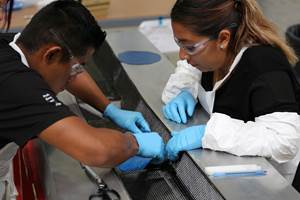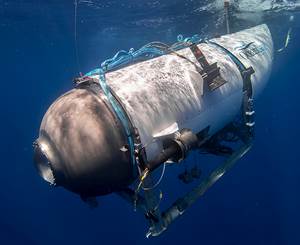More from JEC: High-quality carbon fiber monocoques in two hours
Mubea Carbo Tech produces high-quality carbon fiber monocoques in increasingly larger volumes and lower cycle times, and now introduces all-CF wheels to save almost 30 lb per vehicle.
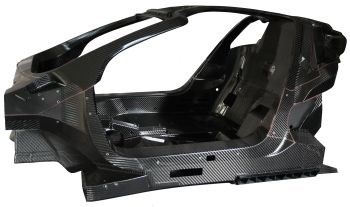
Volkswagen's new XL1 hybrid diesel features a carbon fiber monocoque
made by Mubea Carbo Tech .
There were more than a few carbon fiber monocoques on display at JEC this year. However, not many matched the impressive quality of the structure featured at Mubea Carbo Tech (Salzburg, Austria). Pushing through the crowds to my next meeting, I actually backed up and stopped to get a closer look. They also exhibited carbon fiber wheels, including an aluminum spoke/CF rim hybrid and an all-CF version. Though the company name was familiar, no details were coming to mind. "Who are these guys?" The answers — partly from our meeting at JEC, and partly from my own research — are impressive.
Carbo Tech was formed in 1993 by CEO Karl Wagner. It had long been considered a precision composite structures supplier in the motorsports industry, when in 2010, it secured the largest series production CF monocoque order ever awarded. The contract was with McLaren Automotive (Woking, U.K.) for the MP4-12C super car and follow-on models. (For those of you who don't follow Formula 1, McLaren is a powerhouse in the industry and just a wee bit perfectionist). The contract was for 25,000 monocoques over eight years and resulted in a new 3500m2 Carbo Tech production facility in Salzburg. The next year, global automotive components supplier, Mubea (Attendorn, Germany) acquired the majority of Carbo Tech shares, seeing the future of CF in automotive and seizing the opportunity to extend its lightweight construction expertise into new materials. At that time, Carbo Tech had 350 employees and an annual turnover of EUR 40 million.
For the McLaren CF monocoque, Carbo Tech uses a patented system to produce hollow structures in a resin transfer molding (RTM) process with a 4-hour molding cycle, which can produce 10 tubs per day using two sets of tools. CEO Wagner compares this production of a complete monocell every 2 hours to a standard autoclaved prepreg process, where one monocoque is produced every week. Thus, though McLaren delivered the design, Carbo Tech has worked hard to achieve a very high quality structure while continuously lowering production times. The tubs use epoxy resin and 12K carbon fiber non-crimp fabric with a very high fiber volume content, according to Wagner, that cannot be achieved with any other RTM process. Staggering of preform plies has been developed to achieve necessary load transfer with minimal overlap for weight savings. A typical 2-seat coupe monocoque measures roughly 2m by 1.8m by 1m in height (≈7 ft by 6 ft by 3 ft) and weighs 75 kg (165 lb) ready to install. (The McLaren YouTube video below gives some of the production highlights.)
But McLaren is not Mubea Carbo Tech’s only esteemed customer. The company also produces carbon fiber tubs for the Porsche 918 Spyder. This monocoque includes an integrated windshield frame (windscreen) and twin rollover hoops (resembling raised seatbacks). Mubea Carbo Tech is further extolled as Volkswagen’s partner in developing the one-piece CF center monocoque/safety cell for the XL1 diesel hybrid vehicle (opening image, at top), also made using "Advanced RTM". Known as the 1-liter car, the XL1 was designed to travel 100 km on 1 liter of fuel, made possible by its hybrid powertrain and lightweight à la carbon fiber, including body panels.
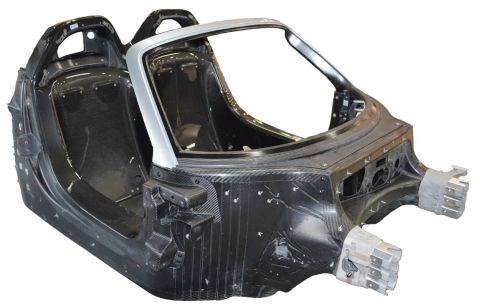
Mubea Carbo Tech's carbon fiber monocoque for the Porsche 918 Spyder.
Carbo Tech now has more than 700 employees and a second production facility in Žebrák, Czech Republic. With a one-monocoque per hour rate squarely in its sight, Mubea Carbo Tech has equipped this facility with a very high level of automation and notes that it will make structural body parts for a premium OEM and can deliver 50,000 parts per year using epoxy and high pressure RTM (HP-RTM).
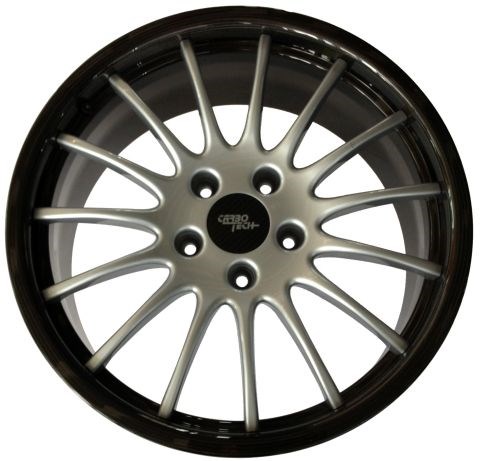
Meanwhile, the Salzburg facility is readying for production of CF wheels using polyurethane (PU). Starting with an 11 kg (24-lb) high-end aluminum wheel, a weight savings of almost 20 percent is achieved by switching to the aluminum/CF hybrid at 9 kg (20 lb) per wheel and almost 30 percent is saved by using an 8 kg (17 lb) all-carbon fiber wheel, the latter measuring 20-inches (508mm) in diameter with a 9.0-inch (229mm) rim. The all-CF wheel is ultra light but requires a very complex set of RTM tools. Mubea Carbo Tech has also developed trick technology for assembly of the aluminum-CF hybrid wheels, for which it has a patent. Joachim Siegmann, head of sales, notes that switching to CF wheels can save over 12 kg, or almost 27 lb, per car, which is huge. An article in the Austrian press earlier this year estimates the global market for carbon composite wheels at roughly one million units per year, with a rising trend and pegs Salzburg production at 20,000 units per year. Thus, it is anticipated that eventually wheel production will be established in the Czech Republic facility as well.
It will be interesting to see what Mubea Carbo Tech does next. They have graciously invited us to visit their facilities, so we will definitely be writing more about them in the future. Stay tuned.
Related Content
Plant tour: Teijin Carbon America Inc., Greenwood, S.C., U.S.
In 2018, Teijin broke ground on a facility that is reportedly the largest capacity carbon fiber line currently in existence. The line has been fully functional for nearly two years and has plenty of room for expansion.
Read MoreComposites manufacturing for general aviation aircraft
General aviation, certified and experimental, has increasingly embraced composites over the decades, a path further driven by leveraged innovation in materials and processes and the evolving AAM market.
Read MoreJeep all-composite roof receivers achieve steel performance at low mass
Ultrashort carbon fiber/PPA replaces steel on rooftop brackets to hold Jeep soft tops, hardtops.
Read MoreThe lessons behind OceanGate
Carbon fiber composites faced much criticism in the wake of the OceanGate submersible accident. CW’s publisher Jeff Sloan explains that it’s not that simple.
Read MoreRead Next
All-recycled, needle-punched nonwoven CFRP slashes carbon footprint of Formula 2 seat
Dallara and Tenowo collaborate to produce a race-ready Formula 2 seat using recycled carbon fiber, reducing CO2 emissions by 97.5% compared to virgin materials.
Read MorePlant tour: Daher Shap’in TechCenter and composites production plant, Saint-Aignan-de-Grandlieu, France
Co-located R&D and production advance OOA thermosets, thermoplastics, welding, recycling and digital technologies for faster processing and certification of lighter, more sustainable composites.
Read More“Structured air” TPS safeguards composite structures
Powered by an 85% air/15% pure polyimide aerogel, Blueshift’s novel material system protects structures during transient thermal events from -200°C to beyond 2400°C for rockets, battery boxes and more.
Read More










.jpg;maxWidth=300;quality=90)




